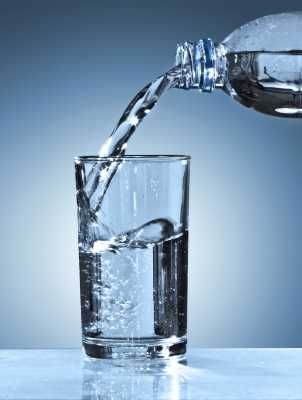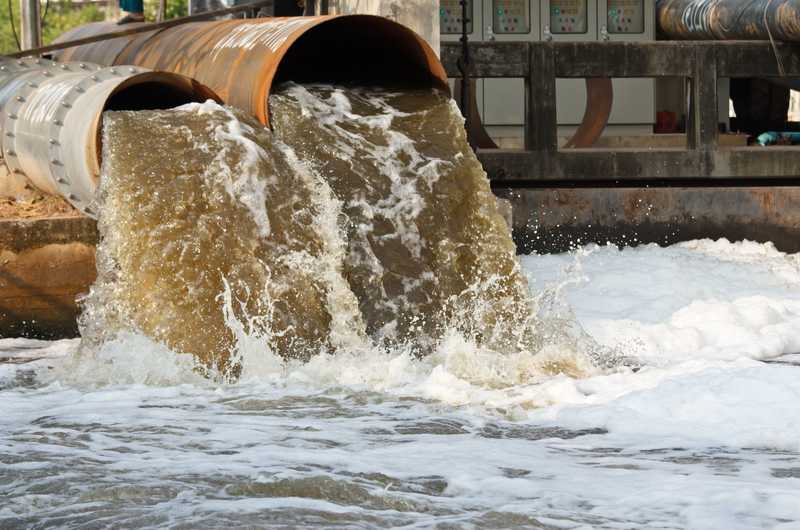New Urban Reuse Standards For Treated Wastewater Prescribed By KSPCB
The new norms and guidelines for Domestic Sewage Treatment Plant shows Karnataka State Pollution Control Board (KSPCB) is tempting apartment complex in cities to violate the norms. According to source, KSPCB is imposing “Urban Reuse Standards” for quality of treated water from Domestic Sewage Treatment Plants (STP). Apartment owners association, RWA and residents of apartment says the norms are irrational and the limit for turbidity in the treated water is so unrealistically low that most of the STP running in the apartment complexes would exceed this limit. Turbidity is a measure of the degree to which the water loses its transparency due to the presence of suspended particulates. Turbidity is measured in NTU (Nephelometric Turbidity Units).
Background
The Karnataka State Pollution Control Board has in recent times started imposing “Urban Reuse Standards “ for quality of treated water from Domestic Sewage Treatment Plants ( STP). For immediate recall, the new Urban standards are juxtaposed with the erstwhile standards prescribed by MOEF/ CPCB, and followed by KSPCB as well.
| Parameter / standards | PREVIOUS STDS |
NEW URBAN REUSE STDS |
REMARKS |
| pH | 6.5-8.5 | 6.0 -9.0 | |
| BOD | < 20 | < 10 | |
| TSS | < 30 | Not specified | |
| O&G | <10 | Not specified | |
| Turbidity | Not specified | < 2 NTU | Akin to TSS |
| E. Coli | Not specified | NIL | |
| Res. Cl | Not specified | > 1 PPM | |
| All Units except pH and NTU in mg/L | |||
We have grave reservations on the need or indeed justification for imposing these very stringent Urban Reuse Standards. Serious consideration needs to be given to the following technical as well as commercial aspects and impacts due to the new standards. We would request the KSPCB to respond to the various issues raised hereunder, and reconsider the need for imposing the new standards.
Aspects of Urban Reuse Standards to Be Considered
2.1 Origin and Practice of Urban Reuse Standards
We understand that the US Environment Protection Agency (USEPA) in the year 1992 suggested these standards for Urban Reuse. Does KSPCB have details and documented information on the states and areas of the US where these standards are currently imposed ? It is our understanding that a vast majority of the States even in the USA do no impose such strict standards.
2.2 Monitoring Quality of Water for Urban Reuse
The same USEPA guidelines cited above, also prescribe reclaimed water monitoring requirements. The guidelines prescribe continuous monitoring of Turbidity and Res. Chlorine, and daily monitoring of E.Coli. Even more pertinent is the fact that Chlorine residual needs to be measured within 15 minutes of sample collection, if the results are to be reliable. It is our submission that neither the KSPCB, nor any of the entities on which these standards are imposed are in a position to follow these monitoring guidelines.
2.3 Turbidity Standards
Indian Standards for Drinking water quality ( BIS 10500 : 1991) prescribes a desirable limit for Turbidity as 5 NTU, and a Maximum limit as 10 NTU. It would therefore appear irrational to impose a limit of 2 NTU on treated wastewater quality. It may be noted that 2 NTU is achievable on a sustained basis at present, only at great cost, using membrane ( UF) technology.
The additional cost of implementing membrane technology for small plants is almost equivalent to cost of constructing a conventional STP to meet the earlier standards, effectively doubling initial cost.
( EXAMPLE : A small conventional STP of 50 KLD capacity, meeting the earlier standards will cost approx. Rs. 15-18 Lakhs. The additional cost for meeting 2 NTU standards will be approx. Rs. 15 lakhs.)
The 2 NTU standards also imply additional expenditure of energy, chemicals, replacement costs of the membranes every five years or so, thereby vitiating any hypothetical gains in protection of the Environment.
2.4 Residual Chlorine and E.Coli
The form of Chlorine most readily available and therefore widely employed for disinfection is Sodium Hypochlorite ( NaOCl).
Available literature on chlorine residuals and E.Coli destruction by HOCl ( generated by NaOCl) indicate that only 99.9 % efficiency can be achieved, over a 30 minute contact time with Chlorine, with Residual Chlorine at 1 PPM. The consequences of this finding are far reaching. It means that E.Coli NIL is not achievable by Chlorination alone. It means to achieve 99.9 % kill, large contact tanks are required with adequate agitation, mixing. It also means that to get a good level of disinfection, the Chlorine residual will have to be necessarily higher, rendering the treated water risky for reuse on gardens and lawn.
2.5 Undesirable Disinfection Byproducts
A lot of literature exists to indicate that indiscriminate use of Chlorine for disinfection results in generation and dispersal into the environment of potentially very harmful Disinfection Byproducts ( DBP’s). Has this aspect been taken into account when specifying the Residual Chlorine requirement of > 1 PPM ?
2.6 Need For New Urban Reuse Standards
With due consideration to the issues raised above, it might also be useful to revisit and review the basic need for the new standards itself :
- 1. Are previous standards being met by a majority of STP installations?
- 2. Has the KSPCB conducted a scientific study and has gathered necessary, sufficient, reliable historical data on contamination of soil or ground water directly attributable to lax provisions of the earlier standards ?
- 3. If sufficient data as above has been gathered, what extent of degradation of soil/ groundwater can be attributed to non compliance with earlier standards as in Sl. 1 above, and/ or lax enforcement of same by the KSPCB ?
Conclusion
It is our belief that after careful scientific and technical consideration, and with due regard to practical ground realities, the new “Urban Reuse Standards” are neither sustainable, nor warranted under present circumstances.
( I am attaching herewith Annexure 1, where the USEPA , after due reconsideration of ground realities and practical aspects, revised the disposal criteria of treated water in Underground wells. It is very illuminating to read the entire proceedings in respect of this new Rule, promulgated by USEPA after due deliberations, appraisal of various other technical alternatives, cost considerations, and due consultations with the affected parties and general public. KSPCB will do well to follow such a procedure, before promulgating Rules with far reaching impacts.)








